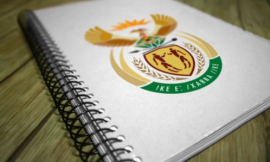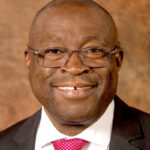The National Assembly (NA) on Thursday approved the Electoral Amendment Bill at its hybrid plenary sitting on Thursday.
The Bill was warranted by the Constitutional Court judgment in the New Nation Movement NPC and Others vs President of the Republic of South Africa and Others case in June 2020, which ruled that the Electoral Act of 1998 was unconstitutional, to the extent that it requires that adult citizens may be elected to the National Assembly and Provincial Legislation only through their membership of political parties.
The Bill is mostly aimed at, amongst others, inserting certain definitions that are deemed consequential to the expansion of the Act to include independent candidates as contesters to elections in the National Assembly and provincial legislatures.
It seeks to provide for the nomination of independent candidates to contest elections in the National Assembly or provincial legislatures, and also provides for the requirements and qualifications that must be met by persons who wish to be registered as independent candidates.
The Electoral Amendment Bill was introduced to Parliament by the Home Affairs Minister on 10 January and published for public comment on 21 January 2022, with the closing date set for 21 February 2022.
Parliamentary spokesperson, Moloto Mothapo, said the Portfolio Committee on Home Affairs, which was tasked with processing the Bill, received 107 written submissions and 13 oral submissions from individuals and organisations, including One South Africa Movement, Africa School of Governance, Zolani Zonyani, Citizens Parliament, Organisation Undoing Tax Abuse (OUTA), Congress of South African Trade Unions (COSATU), Abatsha Force of Change, Independent Candidate Association, and the Inclusive Society Institute.
Submissions were also received from the 70s Group, New Nation Movement, Indigenous First Nation of South Africa and the Council for the Advancement of South African Constitution.
Mothapo said the committee also conducted provincial public hearings in all nine provinces from 7 – 23 March 2022, where a total of 3 483 people attended the public hearings and 610 made oral submissions, with 389 supporting the Bill and 222 rejecting the current format of the Bill.
However, he said that due to the complexity of the Bill, including the demanding extensive public participation process, the committee foresaw that it was not going to meet the Constitutional Court deadline of 10 June 2022.
In this regard, prior to the expiry of the deadline, Parliament approached the Constitutional Court to request an extension period of six months to finalise the Bill.
Mothapo said the Constitutional Court granted an extension until 10 December 2022 to complete the processing of the Bill.
In the further processing of the Bill, the committee invited the Department of Home Affairs, the Electoral Commission, and Parliamentary Legal Service to comment on the report on public participation, and the report formed the basis of the committee deliberations, where it deliberated on the Bill on several occasions and held meetings during the Parliament’s Constituency period in June, July and October 2022.
“The extended deliberations led to the committee proposing additional amendments to other sections of the Electoral Act, 1998, which were not part of the Bill and proposed other material changes to various definitions and clauses in the Bill. As a result, the committee requested permission from the National Assembly to extend the scope of the Bill, in terms of the National Assembly Rule 286(4)(b) and (4)(c).
“The National Assembly granted permission on 1 September 2022, whereby on 2 September 2022, the committee advertised these proposed amendments and called for public submissions two weeks later on 16 September 2022, in order to ensure that members of the public have a chance to comment only on those proposed amendments to the Bill,” Mothapo explained.
With reference to the renewed call for public comments, Mothapo said 258 submissions were received, comprising 254 email submissions and three hand-delivered submissions.
“Also, 13 substantive submissions (emails) encompassing over 100 pages of inputs were received that included three physically hand-delivered submissions from “Civil Society” with a total of 1 218 signatures from “Defend our Democracy” being supported by 56 organisations and from DearSA providing a summary of its emailed submissions.
“The committee considered all the received submissions and respectively deliberated on them. All these resulted in five significant changes. The committee having reconsidered the amendments in the Electoral Amendment Bill, recommended that the House approves the Bill,” Mothapo said.
The Bill will now be sent to the National Council of Provinces (NCOP) for further consideration and concurrence.












